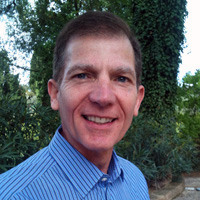One Retiree's Second Act: From the Corporate World to Coaching Tennis
Former Boeing executive left the 9-to-5 routine for a whole new racket.

Profit and prosper with the best of Kiplinger's advice on investing, taxes, retirement, personal finance and much more. Delivered daily. Enter your email in the box and click Sign Me Up.
You are now subscribed
Your newsletter sign-up was successful
Want to add more newsletters?

Delivered daily
Kiplinger Today
Profit and prosper with the best of Kiplinger's advice on investing, taxes, retirement, personal finance and much more delivered daily. Smart money moves start here.

Sent five days a week
Kiplinger A Step Ahead
Get practical help to make better financial decisions in your everyday life, from spending to savings on top deals.

Delivered daily
Kiplinger Closing Bell
Get today's biggest financial and investing headlines delivered to your inbox every day the U.S. stock market is open.

Sent twice a week
Kiplinger Adviser Intel
Financial pros across the country share best practices and fresh tactics to preserve and grow your wealth.

Delivered weekly
Kiplinger Tax Tips
Trim your federal and state tax bills with practical tax-planning and tax-cutting strategies.

Sent twice a week
Kiplinger Retirement Tips
Your twice-a-week guide to planning and enjoying a financially secure and richly rewarding retirement

Sent bimonthly.
Kiplinger Adviser Angle
Insights for advisers, wealth managers and other financial professionals.

Sent twice a week
Kiplinger Investing Weekly
Your twice-a-week roundup of promising stocks, funds, companies and industries you should consider, ones you should avoid, and why.

Sent weekly for six weeks
Kiplinger Invest for Retirement
Your step-by-step six-part series on how to invest for retirement, from devising a successful strategy to exactly which investments to choose.
A high school tennis player early this year looked at me during practice and asked, “What’s your day job, Coach?”
“Oh, you mean this,” I said, holding up the security badge hanging from my neck. “This gets me into the school. I don’t have a day job anymore.”
I had just retired from my job at aerospace giant Boeing and started a new chapter as a tennis coach at a large Catholic high school in downtown Chicago. Now, instead of advising corporate leaders on how to talk about layoffs or new product launches, I was demonstrating how to hit proper ground strokes.
From just $107.88 $24.99 for Kiplinger Personal Finance
Become a smarter, better informed investor. Subscribe from just $107.88 $24.99, plus get up to 4 Special Issues

Sign up for Kiplinger’s Free Newsletters
Profit and prosper with the best of expert advice on investing, taxes, retirement, personal finance and more - straight to your e-mail.
Profit and prosper with the best of expert advice - straight to your e-mail.
For years, I played a lot of tennis to stay fit and unwind, frequently packing my gear to squeeze in a set whenever I could as I traveled the world for my job in public relations. With a millennial son out of the house and my financial adviser smiling at my 401(k) balance, the time was right to try making this lifelong sport more than a pastime. And after I turned 60 three years ago, I made a plan to say goodbye to the corporate world and become a tennis pro.
Plotting my strategy. In early 2017, I talked to my club’s tennis director, who suggested enrolling in one of the top programs for teaching pros, which cost about $400. Over the next few months, I plowed through six online classes, attended a weekend on-court seminar and crammed for a 100-question exam. By the summer of that year, I had my instructor certification.
By then, Boeing had started making changes I didn’t really love, and I moved my retirement date up by six months, to November 2017. That could have left me fidgeting through the long, cold Chicago winter. But because I started planning early, I was ready.
After becoming certified, I got some on-court experience by serving up a Friday-night mixer and running a doubles tournament at my tennis club. As soon as I retired, I started networking with tennis pros over coffee—gallons of coffee—and learned that teaching part-time at a private club was the domain of former NCAA Division I and II college players, not recreational players like me. But they (and some family members) suggested volunteering to coach high school tennis.
Volunteering was an option because I didn’t have to earn a lot of money teaching tennis, thanks to my wife’s job and her employer-provided health insurance, some rental-property income, our savings and my soon-to-be-tapped company pensions.
Coaches, it seemed, were in high demand. I quickly landed interviews with three high school athletic directors—each pleased with my certification, enthusiasm for the game and (most important) my idle afternoons. Each offered a stipend of several thousand dollars for the upcoming boys’ tennis season.
I accepted a position as an assistant coach at Saint Ignatius College Prep, where 20 boys made up the Wolfpack varsity and junior varsity teams. Emphasizing teamwork and physical fitness, we ran two hours of practice each weekday to prepare for a heavy, 30-match season from mid March to mid May. Guided by two former college players among our coaches, I learned how to evaluate players, run skill-developing drills, boost the players’ fitness level and give positive feedback to help them do their best in match play.
As the boys’ season finished up, the head coach asked me to stay on to coach the girls’ team beginning in early August. Heading into summer, I landed a gig to teach a 90-minute beginner adult class at public tennis courts twice a week. But after the first four-week session, the owner said two college-level players on his coaching roster were back, and I was benched.
But I’m not worried. There are lots of ways to be professionally involved in tennis—on and off the courts. And I’m doing everything I can to make my encore career a smashing success.
Profit and prosper with the best of Kiplinger's advice on investing, taxes, retirement, personal finance and much more. Delivered daily. Enter your email in the box and click Sign Me Up.

-
 The Cost of Leaving Your Money in a Low-Rate Account
The Cost of Leaving Your Money in a Low-Rate AccountWhy parking your cash in low-yield accounts could be costing you, and smarter alternatives that preserve liquidity while boosting returns.
-
 I want to sell our beach house to retire now, but my wife wants to keep it.
I want to sell our beach house to retire now, but my wife wants to keep it.I want to sell the $610K vacation home and retire now, but my wife envisions a beach retirement in 8 years. We asked financial advisers to weigh in.
-
 How to Add a Pet Trust to Your Estate Plan
How to Add a Pet Trust to Your Estate PlanAdding a pet trust to your estate plan can ensure your pets are properly looked after when you're no longer able to care for them. This is how to go about it.
-
 9 Types of Insurance You Probably Don't Need
9 Types of Insurance You Probably Don't NeedFinancial Planning If you're paying for these types of insurance, you may be wasting your money. Here's what you need to know.
-
 Amazon Resale: Where Amazon Prime Returns Become Your Online Bargains
Amazon Resale: Where Amazon Prime Returns Become Your Online BargainsFeature Amazon Resale products may have some imperfections, but that often leads to wildly discounted prices.
-
 457 Plan Contribution Limits for 2026
457 Plan Contribution Limits for 2026Retirement plans There are higher 457 plan contribution limits in 2026. That's good news for state and local government employees.
-
 Medicare Basics: 12 Things You Need to Know
Medicare Basics: 12 Things You Need to KnowMedicare There's Medicare Part A, Part B, Part D, Medigap plans, Medicare Advantage plans and so on. We sort out the confusion about signing up for Medicare — and much more.
-
 The Seven Worst Assets to Leave Your Kids or Grandkids
The Seven Worst Assets to Leave Your Kids or Grandkidsinheritance Leaving these assets to your loved ones may be more trouble than it’s worth. Here's how to avoid adding to their grief after you're gone.
-
 SEP IRA Contribution Limits for 2026
SEP IRA Contribution Limits for 2026SEP IRA A good option for small business owners, SEP IRAs allow individual annual contributions of as much as $70,000 in 2025, and up to $72,000 in 2026.
-
 Roth IRA Contribution Limits for 2026
Roth IRA Contribution Limits for 2026Roth IRAs Roth IRAs allow you to save for retirement with after-tax dollars while you're working, and then withdraw those contributions and earnings tax-free when you retire. Here's a look at 2026 limits and income-based phaseouts.
-
 SIMPLE IRA Contribution Limits for 2026
SIMPLE IRA Contribution Limits for 2026simple IRA For 2026, the SIMPLE IRA contribution limit rises to $17,000, with a $4,000 catch-up for those 50 and over, totaling $21,000.